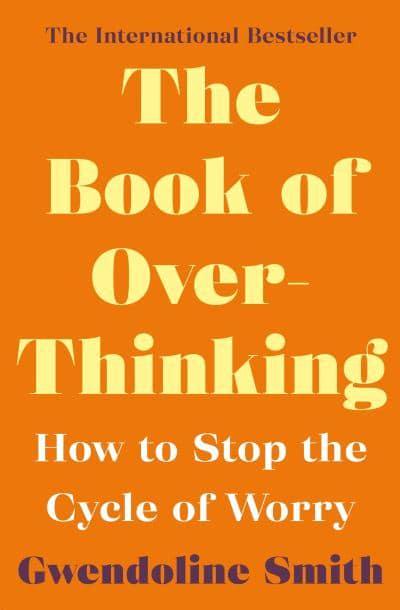 Caiaimage/Rafal Rodzoch / Getty Images
Caiaimage/Rafal Rodzoch / Getty Images
Real talk: Some 30% of men will suffer a bout of depression at some point in their lifetime. So chances are at least a few of your friends—and possibly you—have struggled with depression.
And yet, we’re willing to bet you can’t name which of your fellow friends or family members might also struggle with it.
“Both men and women face cultural stereotypes and pressures. But with men, these make them less likely to voice or discuss their personal challenges and struggles with depression,” says Kristen Dieffenbach, Ph.D., a certified mental performance consultant and executive board member of the Association for Applied Sport Psychology.
Culturally, most American men aren’t spending guys’ night talking about feelings. And even among your boys who are down to dish, those conversations are probably one-and-done—even if your feelings of ambivalence, anxiety, low self-worth still linger months later.
“There are lots of cultural underpinnings here of ‘what it means to be a man’ that can get in the way of men identifying, expressing, and working through their problems,” adds New York-based clinical psychologist Ben Michaelis, Ph.D., author of Your Next Big Thing.
But consider: Suicide is four times more likely in men than women. And tragic suicides like Anthony Bourdain’s, Robin Williams’, and Rick Rypien’s happen too often.
So it’s time we start talking.
Signs of Possible Depression in Men
You probably know the usual red flags of depression. Feeling sad, lonely, ambivalent, hopeless, tired, a lack of energy, and/or a lack of interest are all symptoms. But a few surprising symptoms of depression are totally specific to guys.
“Men are more likely to externalize their symptoms, so depression can come out as anger rather than sadness, making it less likely to be diagnosed as such,” says Michaelis. In fact, depressed men are more likely to feel angry and aggressive, exhibit more risky behavior, and more likely to turn to substance abuse than women, according to a study published in JAMA Psychiatry. Alcohol isn’t the only mechanism, either. Men more often use tools like drugs, abuse, inappropriate sex, or gambling to attempt to control their feelings or quell their anxiety, Michaelis adds.
Between these symptoms—many of which have become normalized among men—and the cultural idea of what’s “normal” for guys to express, it’s easy to ignore the symptoms of depression. Making matters worse: Seeking professional psychological help hinges on your ability to identify these feelings in the first place.
“There’s definitely a level of repression in men, but also a lack of recognition about these problems,” Michaelis adds. “In my own practice, I’ve seen men who were clearly in the midst of a deep depression but had no recognition that that is what was happening.”
Depression in Men: How to Know You Might Need Help
The possibility of depression raises a challenge decision. You’ll have to determine if your lingering irritability (or that new habit of excessive nightcaps) is just a reaction to run-of-the-mill stress—something that will pass once you reach that deadline at work or figure things out with your lady friend—or whether it’s due to deeper, chronic, or more fundamental issues.
(Both can benefit from a professional sounding board, of course. And chronic stress is its own form of long-term mental problem, which is also a cause to seek professional help. You can take science-backed tests, like the Beck Depression Inventory, to quantify if your symptoms align with an official mental health condition.
But here’s the really important point: You don’t have to be “categorized” or diagnosed with clinical depression or clinical anxiety to go to therapy.
Unsure If You Need See a Therapist? Going Is the Best Way to Know.
“Therapy gets a bad rap,” Dieffenbach says. “It’s often seen a response to something someone can’t handle, but I really encourage people to reframe it and think of it as seeking advice from a consultant who specializes in unlocking human potential or a teacher with an expertise in life skills.”
In a way, it’s a lot like seeing a nutritionist to clean up your diet, or a career coach to grow professionally.
This more casual interpretation of seeing a psychologist is becoming more and more the norm, Michaelis adds. “A lot of the guys who come in to see me these days think of me more as a thought-partner or performance coach. And to be honest, the work [we do together] has largely shifted in that direction.”
Seeing a mental health professional before you “need” to has an added benefit, he adds. When emotional issues do come up, you already have a standing appointment and a comfortable rapport with someone who can help
One Helpful Rule for Seeking Help From a Therapist
Still not sure when to reach out? Dieffenbach offers a pretty good rule of thumb: It’s worth seeking an expert’s opinion if you feel like stress, anger, or any other negative feelings are impacting you or the people around you. Are you losing sleep from everything that’s on your plate? Is your significant other getting mad because you never wanting to do anything on the weekends? Do you feel blue for no clear reason? It’s probably worth making that appointment.
And listen to what the people around you are saying. “If others are expressing concern for your wellbeing or noticing changes you may not be seeing, listen to them and err on the side of reaching out,” Michaelis says. “There’s very little downside to seeking help, and it’s always better to reach out when it’s too early rather than too late.”
As Dieffenbach puts it: “Everyone, whether they register on the scale of depression or not, has good and bad days, and everyone can benefit from improving the skills they have and learning new ones. It is never a weakness to seek to grow and learn more about yourself and how to be the best you that you can be.”
How to Find a Therapist Who Fits Your Needs
Find a therapist near you using a reliable database of licensed professionals. That last part is vitally important—look for a Ph.D., L.C.S.W., or L.C.P.C. degree.
Reach out to more than one therapist, too. “Don’t be afraid to interview several professionals before deciding who fits your style and needs,” Dieffenbach offers. The cartoon image of a couch and box of tissues doesn’t apply to every therapist or patient, and it may not be what you need.
If your excuse is you just don’t have time to see a therapist, consider going digital. A recent study in Psychiatric Services found smartphone apps can be just as effective in helping mental illness as in-person treatment, and that people were actually more likely to stick with the digital therapy. Try Talkspace or BetterHelp, either of which will pair you with a licensed counselor whom you can text or video chat with anytime for a flat monthly fee.
Are you going through depression or you know someone who is? Share and comment below.
By Rachael Schultz
Source: Men’s Journal






Leave A Comment
You must be logged in to post a comment.